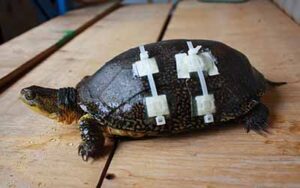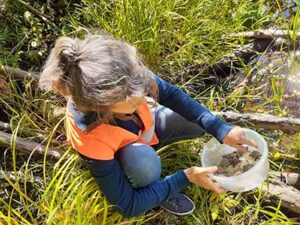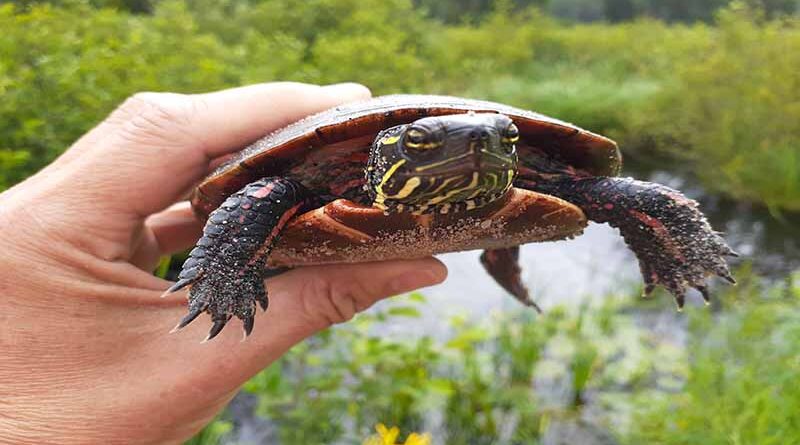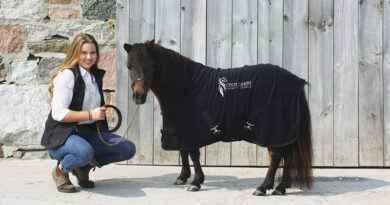Helping Turtles Grassroots Style
Paleontologists still debate about how long Turtles have had an earthly presence. Fossil evidence puts it at 200 million years, some research suggests more. Such resilience makes it all the more difficult to comprehend the fact that at present the turtles in Ontario are a species at risk. Turtle populations are declining largely due to habitat loss, road mortality, and poaching. Making up for these losses is compounded by the fact that unlike many animal species turtles are very slow to repopulate. Species such as Snapping Turtles and Blanding’s Turtles can take upwards of 17 to 20 years to reach sexual maturity. It can take as many as 60 years to replace one deceased adult turtle. In addition to this, the survival rate for turtle eggs and hatchlings is less than 1%.
As abysmal as this sounds there is a nuance of hope. Grassroots efforts to help Ontario’s turtles are catching on in a big way across the province. This stems from a growing number of people coming to understand the role biodiversity and ecosystems have in our daily lives and the importance of protecting the ecological services they provide. Citizens of all ages concerned about declining turtle populations want to do what they can to protect this iconic species from extinction. Conservation is a package deal as such efforts focused on helping one species due to the interconnections and interdependence help many species. The following are some of the ways that each of us can help the Ontario turtles this turtle season and thereafter.
Turtle season typically starts in April and goes through to the end of October. This means there is a distinct possibility of seeing a turtle crossing the road in rural communities, cottage country, and the outskirts of urban communities at any time during the months mentioned.
Crossing Roads: If you stop to assist a turtle across the road it is imperative to make road ‘SAFETY YOUR #1 PRIORITY!’ Always move a turtle in the direction it was headed even if it makes no sense to you. Turtles are an aquatic species and do not come out of the water very often. When they do it is because they have a specific purpose.
 Injured Turtles: Did you know Ontario has a turtle hospital? It is located at the Ontario Turtle Conservation Centre (OTCC) in Peterborough. Should you find an injured turtle ‘ANYWHERE’ in Ontario please call the OTCC at 705-741-5000 once you have retrieved the injured turtle and have it in your possession. The OTCC provides medical care at no charge and has turtle taxi volunteers to assist with transportation if you are not able to drive the injured turtle to the OTCC. In 2022, ‘1,885’ injured turtles were admitted. 90% were the result of being struck by a motor vehicle. Once treated and recovered turtles are released back into the wild at their point of origin.
Injured Turtles: Did you know Ontario has a turtle hospital? It is located at the Ontario Turtle Conservation Centre (OTCC) in Peterborough. Should you find an injured turtle ‘ANYWHERE’ in Ontario please call the OTCC at 705-741-5000 once you have retrieved the injured turtle and have it in your possession. The OTCC provides medical care at no charge and has turtle taxi volunteers to assist with transportation if you are not able to drive the injured turtle to the OTCC. In 2022, ‘1,885’ injured turtles were admitted. 90% were the result of being struck by a motor vehicle. Once treated and recovered turtles are released back into the wild at their point of origin.
Turtle Taxi Volunteers: If interested in occasionally providing a drive for an injured turtle you do not need to have any experience with turtles but must have access to a vehicle. Turtles will be transported in closed containers so no handling is involved. Call the OTCC non-emergency line at 705-745-7530 or e-mail volunteer@ontarioturtle.ca for more information.
Found A Hatchling: April through to early June is when ‘last years’ turtle hatchlings that opted to stay in their nest for the first winter will venture out of the nest for the first time. Hatchlings could show up in your garden or on your lawn, driveway, road, or ATV trails. If you find a hatchling take it to the nearest body of water and release the hatchling in an area that is shallow and has vegetation that will serve as a protective covering.
Nesting Season: The Ontario turtles nest from mid-May to mid-July. June is the ‘peak’ month for nesting. During this period the number of turtles that travel across roads increases significantly. If you observe a turtle nesting give her space to ensure the nesting process is not disturbed. When the female has finished nesting and covered her nest, observe the direction she heads. If she intends to cross the road please help ensure she gets safely across the road if it is safe for you to do so. Nesting is physically draining so a female turtle after nesting will be shakey and dehydrated making her more vulnerable to harm if crossing a road.
Nest Protection: If a turtle nests on your property you ‘are allowed’ to install a turtle nest protector and are encouraged to do so as a contribution to species recovery efforts in your community. Should you observe a turtle nesting on public property such as a road shoulder nest protectors are ‘NOT’ permitted to be installed due to safety and liability concerns. The incubation period for turtle nests is 60 to 90 days from the day the female turtle laid her eggs. This is a general guideline.
Spread The Word: Even sharing a turtle awareness post on social media can make the difference between a turtle getting help or not as collective efforts across the province strive to protect and rebuild Ontario’s turtle populations. Thank you for helping the turtles in the ways you do.
For a more detailed account of helping turtles and instructions for making a turtle nest protector check out our website at www.thinkturtle.ca. If you have questions please contact Think Turtle Conservation Initiative via 647-606-9537 or e-mail thinkturtle@yahoo.com.




